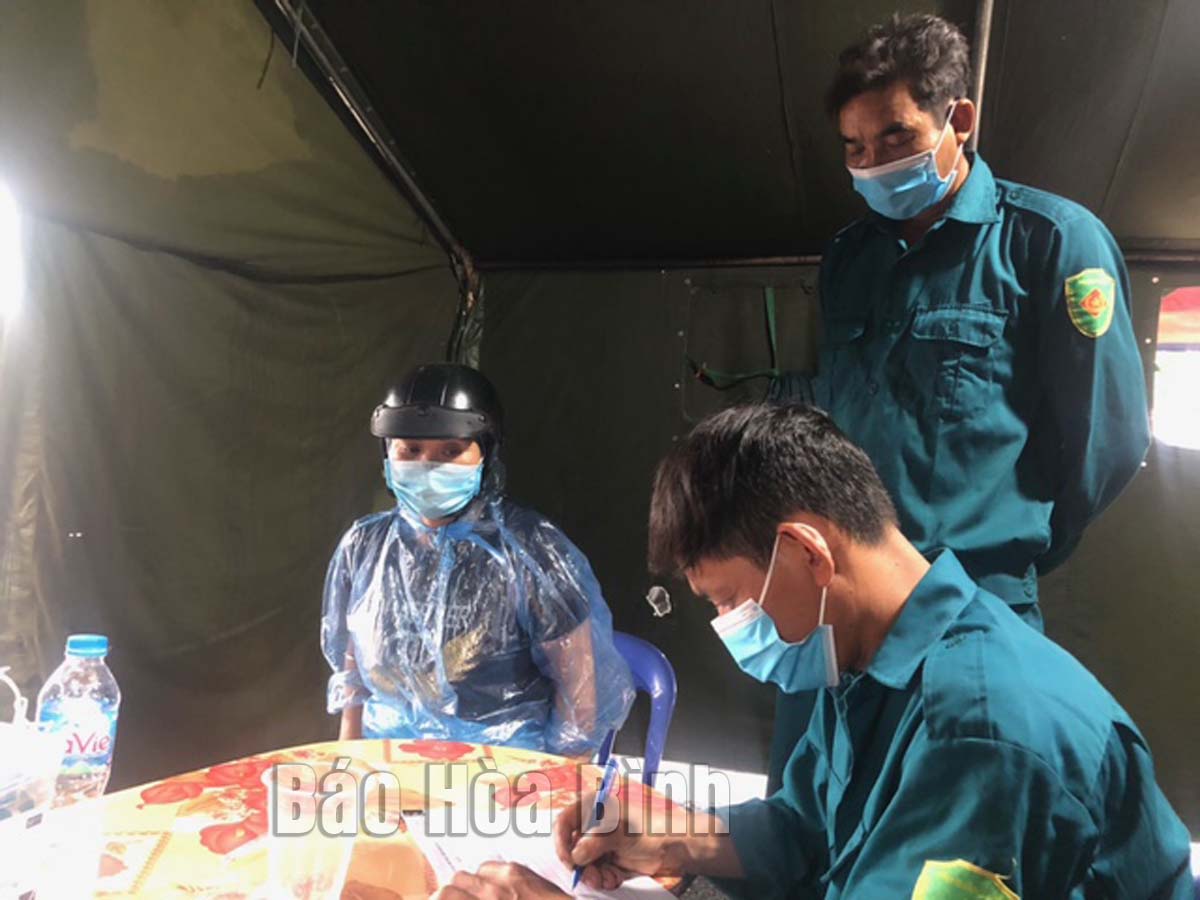


At the meeting, Mr. Bui Van Khanh, the Deputy Secretary of the Provincial Party Committee, the Chairman of the Provincial People's Committee, the Head of the Provincial Steering Committee for Covid-19 Prevention and Control directed many important contents relating to the management and supervision of the people from the epidemic areas, provinces and cities with the community-acquired cases passing through, to and from Hoa Binh province; the organization of epidemic prevention and control in the industrial parks (IZs)...
 The quarantine checkpoint in Ba Lam village,
Thanh Cao commune (Luong Son) are performing the body temperature measurement
and medical declaration for all the people entering the area from the outside
province.
The quarantine checkpoint in Ba Lam village,
Thanh Cao commune (Luong Son) are performing the body temperature measurement
and medical declaration for all the people entering the area from the outside
province.
Specifically: For people coming from the epidemic areas: It is required that the districts and the city should strictly and thoroughly control people entering and leaving the area. It is necessary to carry out 14-day concentrated medical isolation, taking samples for SARS-CoV-2 test three times on the first day, on the 7th day and on the 13rd day for those who return from the epidemic areas implementing the social distance according to Directive 16 of the Prime Minister.
For those who pass through and those who do not belong to the above-mentioned epidemic areas, when coming to work in the province, they must present a negative test result for SARS-CoV-2 within 72 hours for PCR test or 24 hours for the antigen rapid test. In case that there are no test results, samples must be taken for a quick test for SARS-CoV-2 at key points of epidemic prevention and control in the province, and it is required to be temporarily isolated right before being taken the samples until test results are available. (the expenses for testing are paid for by the citizens according to regulations).
The Chairman of the Provincial People's Committee assigned the Department of Transport to assume the responsibility in coordination with the relevant departments and agencies, and the People's Committees of the districts and the city must advise the Steering Committee on Covid-19 disease prevention and control, the "green channel” in the province must be planned based on the situation and developments of Covid-19 epidemics in the area. The specific regulations on the "set of badges” to coordinate all kinds of vehicles entering and leaving the province must be regulated. The Provincial Public Security has been assigned to organize the implementation of provincial-level checkpoints for Covid-19 control and prevention on road routes and the gateway to Hoa Binh province.
It is requested that the districts’ People's Committees strengthen the inspection and the control of wholesale markets and the people's markets in the area on epidemic prevention and control.
Regarding the organization of epidemic prevention and control work in the industrial zones, the production and business establishments, the Chairman of the Provincial People's Committee assigned the Management Board of the Provincial Industrial Parks to assume the responsibility in coordination with other relevant departments, agencies and localities, directing the industrial zones, factories, and production facilities in the industrial zones to take measures to ensure the epidemic prevention and control, especially it is important to closely manage the labor force from other localities. It is also required that the companies and production facilities strictly follow the directive documents of all levels and have production plans suitable to the development of the epidemics. In the current urgent time, it is required to arrange eating and sleeping places for the officials and the workers outside the province in the company, the production and business facilities must ensure the prevention and control of the epidemics. The employees must be arranged to work in shifts, ensuring the distance in production.